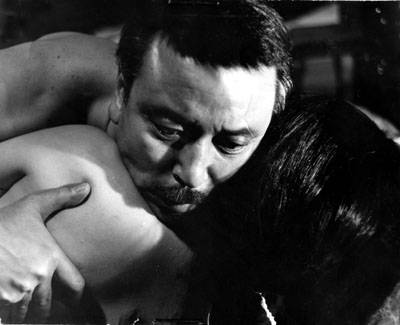[HanCinema's Film Review] "Assassin" + Full Movie
 By Panos Kotzathanasis | Published on
By Panos Kotzathanasis | Published on
Evidently a blatant propaganda film, as the intro and the presentation of communists as traitorous, cold-hearted murderers eloquently highlights, "Assassin" still manages to move away from the particular aspect, through an unusual (even eccentric one could say) narrative implemented here.
Advertisement
Two communist factions are fighting each other over whether to back the U.N. Trusteeship under which the Korean Peninsula is to be divided between U.S. and Soviet control. One faction decides to hire a killer, who is known for his uncanny abilities, but also for his good heart, in order to assassinate the leader of the other, general Nam Ho-cheon. The assassin, who is also raising the daughter of one of his victims as his own, is reluctant, but when he learns of the target's name, he agrees to do so, and begins a trip to a remote island, where the general is staying with his mistress. In that fashion, the three arcs of the story are initiated, all taking place just before the hit. One involves the murderer and his handler, one the general and his lover, and one Sin-ae, the assassin's daughter, and the faction man who is with her.
This three-fold approach is what allows Lee Man-hee-I to stray away from his main story, to the point that the actual killing does not matter that much after a while, with the actual deed being purposefully unremarkable. The Assassin and his Handler talk and comment on events of the past while moving through the water, while the General talks about the same with his mistress, in a completely different version, however, a concept that can be perceived as part of the propaganda in the film. In the meantime, the girl is playing with her "goon" while talking about various fairy tales, in an aspect that looks allegorical, but is quite difficult for someone to put their finger on.
After a point, the discussions take a more philosophical hypostasis, regarding honor and love, with both killer and general showing that the first has been disrupted by the second, in a comment that is strangely implemented here. The same strangeness applies to the use of time, since, although the main story takes place within one night, a number of scenes obviously happen during daytime. In that regard, Yu Jae-won's editing emerges as a crucial aspect, with the dream-like, somewhat abstract nature of the movie being dictated by it. On the other hand, the exploitation of a young boy in the effort for assassination, and the fate of both killer and handler, are rather evident propagandistic elements. One could say that Lee was trying to move away from this last aspect any way he could through his narrative, but in the end, he failed, as the messages that come out of the movie are evidently one-sided.
The cinematography is also very interesting, following a noirish approach for the most part, with the exception of the rather symbolic scene in the apple orchard, which is quite bright. The sequences with the general and his mistress, including a sex scene, also move in noir paths, while the composition of the particular scene also points towards stage play aesthetics.
The acting is as mysterious as the whole film. Jang Dong-hwi as the Assassin seems to have no feelings or thoughts about what he is doing, in contrast to the intense feelings he harbors for Sin-ae. Park Am as the General is equally eccentric, with his philosophical mood and his pessimistic behavior being the main elements of his demeanor. The scene where the two meet is as strange as it is intriguing, in a style that reminds of the Marlon Brando-Martin Sheen one in "Apocalypse Now".
Despite the in-your-face anticommunist messages presented here, "Assassin" emerges as a rather interesting film to watch, particularly due to its unusual narrative and characters that deem it a rather intriguing movie.
Review by Panos Kotzathanasis
___________
"Assassin" is directed by Lee Man-hee-I, and features Jang Dong-hwi, Namkoong Won, Park Am, Kim Hea-kyung, Oh Ji-myung, Jeon Young-sun. Release date in Korea: 1969/01/16.
 Panos Kotzathanasis
Panos Kotzathanasis
Panos Kotzathanasis is a film critic and reviewer specialising in East Asian Cinema. He is the founder of Asian Film Vault, administrator of Asian Movie Pulse and also writes for Taste of Cinema, Eastern Kicks, China Policy Institute and Filmboy. You can follow him on Twitter and Facebook. Panos Kotzathanasis can be contacted via sinkazama82@gmail.com.


